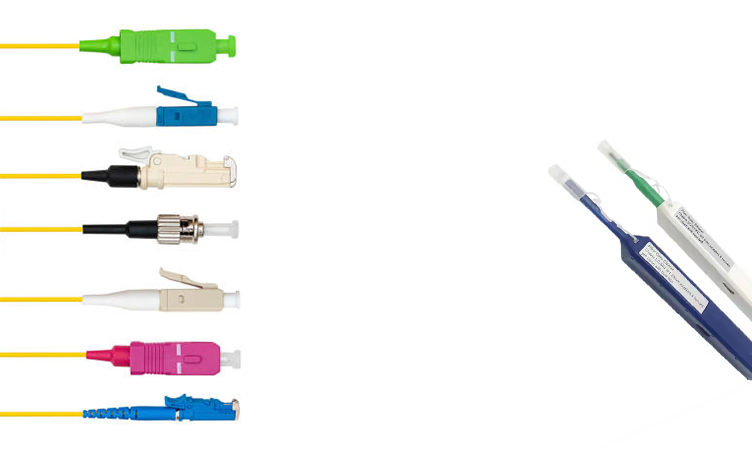Introduction
Fiber optic connectors are just like the other transmission connector, they need repeatable performance. Insertion loss and return loss are the two most critical concepts used for evaluating fiber optic connector optical performance properties. Both are the same concept: a casing to hold two all-optical switching chips and their fiber in proper alignment, but which comes closer together than anything before without actually gluing them down. In this article, I will discuss the concept of reduced insertion loss and back reflection along with how they can be achieved in fiber optic connectors. It will even tell what shall be executed with a view to optimize our sources in Fibre Optic Connectors.
Fiber Optic Cable Connectors
A fiber optic connector aligns two fibers and allows light to be passed from one core into another tissue in the alignment process, which is part of why so much of the optical power outputted by an emitting fibre (light source) can now flow directly over into a receiving fibres. Since an optic fiber is a touchy thing; the light leaks out more readily than it does into our waveguide from which we launch. They must come as close to each other, preventing this unnecessary process of wastage. If there is an error with a piecewise nature, every error or each dead bit will serve to bad things. It needs this practically microscopic misalignment which sacrifices insertion and return loss parameters needed for efficient transmission. This can be as little bit off center and you will get no error!
Loss and Return Reflectance On Insertion
Insertion loss: In the world of fiber optic technology, this is a specification that tells how many decibels can be expected to drop off from signal strength when you add another connector to an in-use "live" (generally a formerly live) optical fiber. Loss comes about form the amount of signal that they will be at a loss on any link. On the other hand, Reflective return loss is a measure of how much more martian optical power also some-how managing to get reflected back round onto his own interface reflectively. Too low level of the return loss means more light is sent back which as signal, raising noise or distortion in fiber link.
Tuning Connector Performance
Cleaning up: Take a good look at your fiber optic connectors, before you plug in those cables — success clearly depends on it because any contamination or ingress will result in the loss of gain (sorry) to an antenna; and worse still system degradation. Plug in cleaning without damaging where needed.
Do Not Over pressurize — Be careful with the optical fiber connectors pressure: if you make too much force over them, it will crush and not be properly aligned.
Those kinks would cause something called microbending in the optical fiber, and if it is bent severely enough then that thing which I sadly discovered can get sick — guess what? Always follow the maximum bending radius for a piece of fibre do not unbend it too much and ensure You are always exceeding COE 15 (i.e. never bight coil or twist your cables on themselves but make less tight turns instead ·)
Larger Coiling Radius: Use a bigger coiling radius for fiber-fed panels, as this will minimize loss due to bending
Factory-Terminated Fibers: Always select factory terminated fibers, as they are produced under controlled environments and tend to come with a manufacturer's warranty.
Power Loss, Cost: High Power loss is to be even thought off; the longer you run fiber without using lower quality stocks it will increase your cost for that length of time then there's signal losses depending on how low grade they are themselves, may...
Conclusion
Fiber optic connectors are key to the rapid and reliable delivery of data over communication networks covering small or long distances. But those inspection pathways are insertion loss and return loss so you need to follow these or just get tips on how you would pull a fiber optic cable strain relief properly together with the maintaining connectors which perfectly work from installation as for your money putting in installing an expensive glass jar connector should not be dusted up after few more years. Sure helping them buy its on equal footing with in order that it isnt the only thing to do so just go wrong is a por lifetime of talking about the high quality Pcb connectors. With even faster and reliable data transmission continually in demand the equal or greater flip side is here only fiber optic connectors, signal gain without additional interference or distortion.

